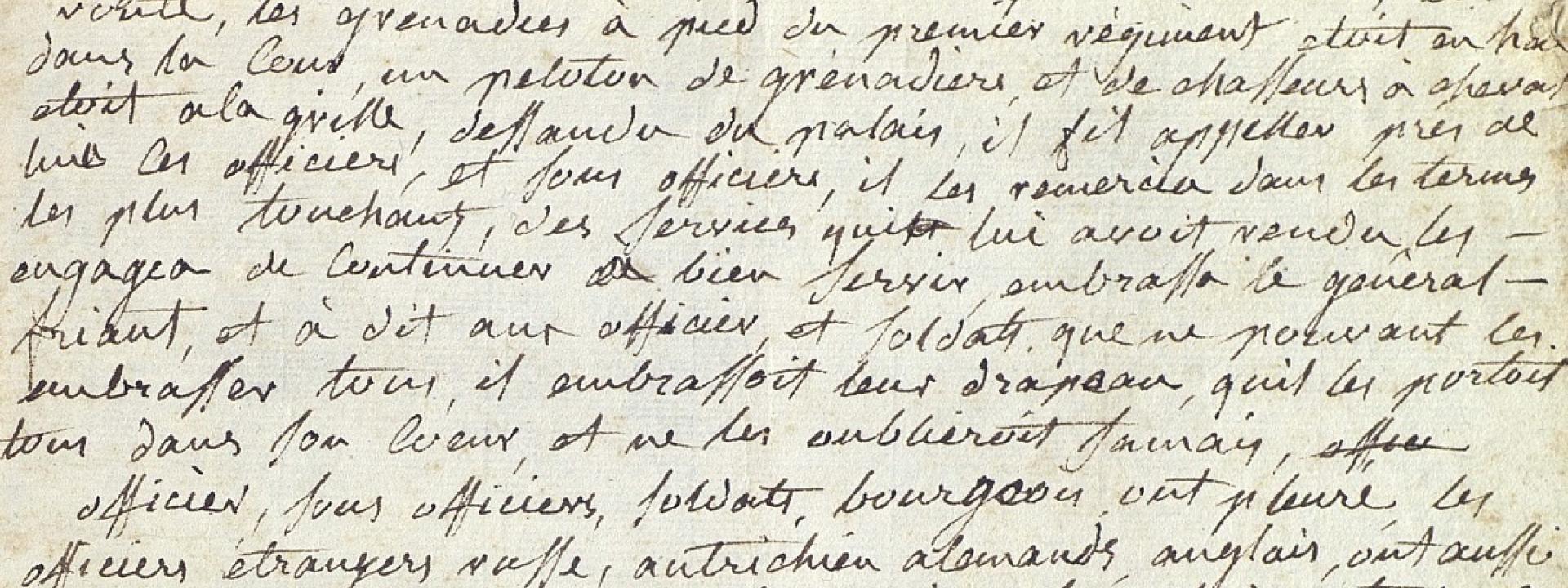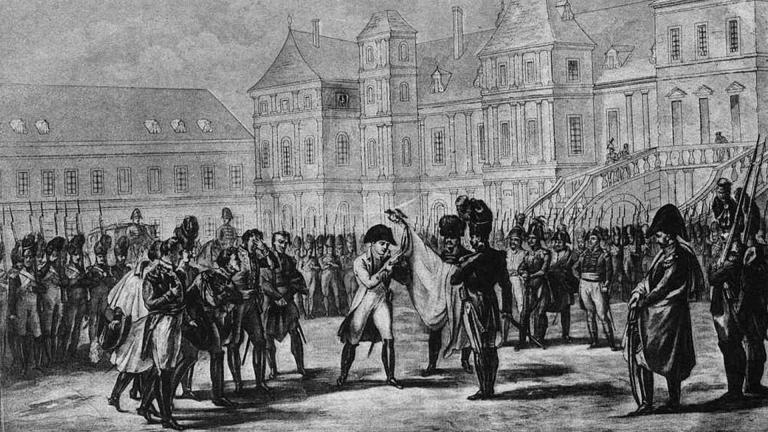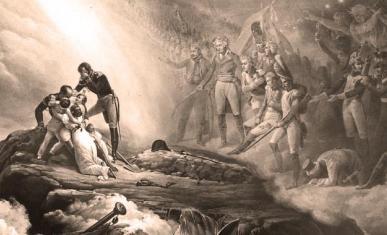April 1814: abdication and Treaty of Fontainebleau
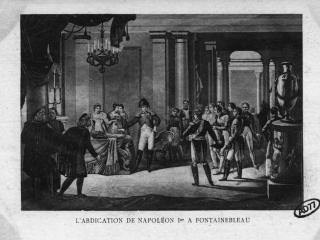
The coalition armies came out victorious at the end of the decisive "Battle of the Nations" (Leipzig, October 1813) and set off for France on 15th December. Despite a series of victories (battles of Champaubert, Montmirail, Montereau) achieved by Napoleon at the head of an army of young recruits, Paris fell on 31st March 1814 after a day of fighting, while the Emperor was waiting for the Allies in Fontainebleau. He then commissioned his grand squire Caulaincourt to negotiate with Tsar Alexander I, who was welcomed by Talleyrand in his private mansion in rue Saint-Florentin.
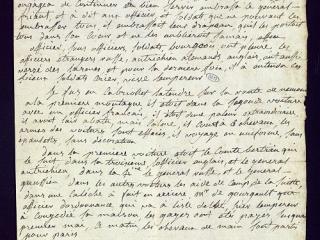
On 3rd April 1814, the Senate declared Napoleon I’s disqualification, "guilty of having violated his oath and the rights of peoples by raising men and taxes contrary to the institutions". The next day, events accelerated in Fontainebleau: the day ended with Napoleon's conditional abdication and a delegation being sent to the Tsar to negotiate the counterparts. Napoleon resigned to it after talking to his marshals. While the allied sovereigns made a triumphant entry in the capital on 10th April, the Senate called to the throne the Count of Provence, the brother of King Louis XVI, who had been guillotined during the Revolution, who was to become the future Louis XVIII.
On 11th April, Napoleon signed the Treaty of Fontainebleau, which had been concluded on 6th April in Paris between Marshals Ney, Macdonald, General Caulaincourt, his plenipotentiaries, and the ministers of Austria, Russia and Prussia. It was ratified on 14th April. In application of this agreement, Napoleon abdicated unconditionally. The Emperor of the French "renounced for himself, his successors and descendants, to all rights of sovereignty and domination in France and in Europe. He agreed to reside on the island of Elba, erected as a principality, which would be owned by him in full sovereignty and ownership".
In the Cour du Cheval-Blanc, in front of the monumental staircase of the Château de Fontainebleau, Napoleon Bonaparte bid farewell to the Imperial Guard on 20th April. He emotionally kissed the flag presented to him by the old grenadiers and gave the following speech:
"Soldiers of my Old Guard, I bid you farewell. For twenty years you have been my constant companions on the road to honour and glory. In these latter times, as in the days of our prosperity, you have never ceased to be models of courage and fidelity. With men such as you our cause would not have been lost. But the war would have been interminable; it would have been a civil war, and that would have entailed deeper misfortunes on France. I have therefore sacrificed all of our interests to those of the country; I shall depart. But you, my friends, continue to serve France. Her happiness was my only thought; it shall continue to be the object of my desires! […]"
